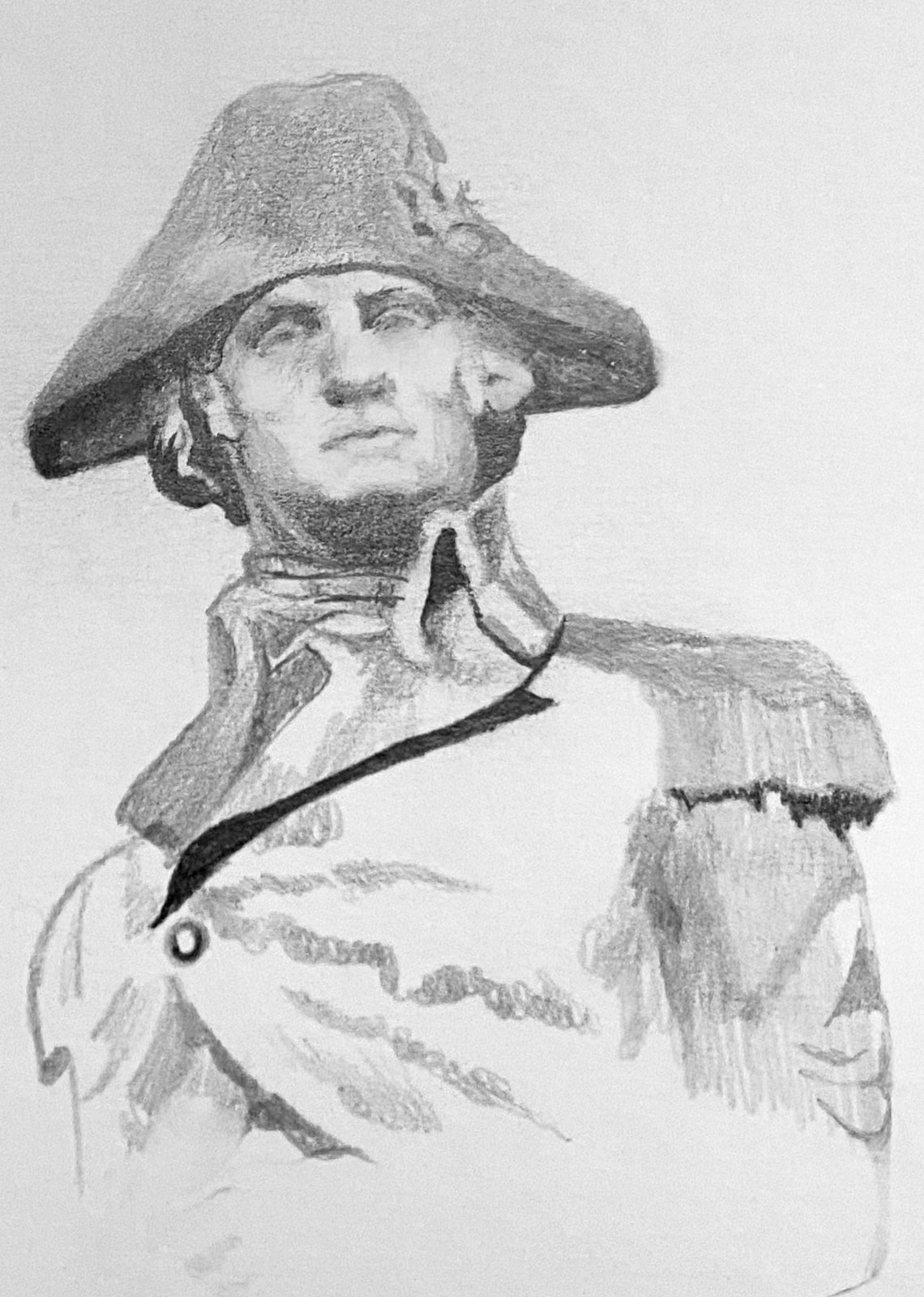Remarks by author Bruce E. Mowday during Brandywine’s Remembrance Day
Event took place on September 11, 2024
September 11, 2024
Brandywine Battlefield Park
Remembrance Remarks
I thank you for the invitation to speak at this solemn event to honor those who sacrificed their lives here at Brandywine on September 11, 1777, and elsewhere during the American Revolution. This is truly an honor.
As I was thinking about what I was going to say today, another solemn dedication in our nation’s history came to mind. During his Gettysburg Address to commemorate the opening of the national cemetery in November 1863, President Lincoln acknowledged the sacrifices of the American Revolution soldiers and spoke immortal words that perfectly summarize our assignment here today. I can’t improve on his oratory. In part, President Lincoln said:
We are met on a great battle field of that war. We come to dedicate a portion of it, as a final resting place for those who died here, that the nation might live. This we may, in all propriety do.
But, in a larger sense, we can not dedicate we can not consecrate we can not hallow, this ground The brave men, living and dead, who struggled here, have hallowed it, far above our poor power to add or detract. The world will little note, nor long remember what we say here; while it can never forget what they did here.
It is rather for us, the living, we here be dedicated to the great task remaining before us that, from these honored dead we take increased devotion to that cause for which they here, gave the last full measure of devotion that we here highly resolve these dead shall not have died in vain; that the nation, shall have a new birth of freedom, and that government of the people, by the people, for the people, shall not perish from the earth.
Today, we all have a sacred duty, as outlined by President Lincoln. Our charge here today, and forever in the future, is to remember those sacrifices made at Brandywine, and more importantly, make sure those living today and those yet to be born also remember Brandywine and recognize the significance of those patriots’ bravery and of their sacrifices.
On the ground we now stand, at this hour on September 11, 1777, chaos reigned. For George Washington and his troops, the battle, a severe loss, was drawing to a conclusion. His headquarters, just a few feet away, was in the possession of the enemy, the British army. General Anthony Wayne’s attempt to keep the British behind the Brandywine had failed. General Sullivan’s attempt to fend off the attack of the British at Birmingham Hill and Sandy Hallow failed. The bravery of the American soldiers and their belief in liberty for all allowed them to slow down the British advance to allow the American army to retreat to Chester. George Washington’s army survived September 11 and lived to win our freedom and independence.
Washington’s report to Congress that evening, noted the field was lost to the enemy. Washington specifically named two Continental officers in that report, one being a young Frenchman who celebrated his 20th birthday just five days before the battle of Brandywine. He was the Marquis de Lafayette. In his first battle for American freedom, Lafayette was wounded on Birmingham Hill and spilled his blood for his belief in independence and freedom. At the moment he was wounded, he was on his way to being an American hero. A much needed American hero. For Lafayette championed our cause in France and without the assistance of the French Army and Navy we would not have defeated England during the American Revolution.
I’m a member of the American Friends of Lafayette and they greatly assisted me during my research for my book Lafayette at Brandywine: The Making of an American Hero. When I first talked with officials of that organization about my book, they had an interesting reaction. They laughed. They then said the organization always knew the most important aspect of the battle of Brandywine was Lafayette. They asked, what took us here at Brandywine so long to recognize the fact?
We now know and the country, today, is being made aware of the importance of Lafayette and Brandywine as we are in the midst of a grand celebration to mark the bicentennial of Lafayette being the Nation’s Guest for his contributions to America’s independence. For 13 months, Lafayette toured the United States in 1824 and 1825. The American Friends of Lafayette are marking celebrations of the amazing tour.
Our turn, here at Brandywine, Chadds Ford and West Chester, will come on July 26, 2025, the 200th anniversary of Lafayette’s visit during his tour as America’s Guest. I’m hoping everyone here will join in making that celebration a success! As a final tribute when the tour concluded, Lafayette returned home to France on a new American naval ship, The BRANDYWINE.
Lafayette and all the brave soldiers that fought at Brandywine and the American Revolution need to be remembered and honored today and every day.
I’ll conclude with a comment on what I believe to be President Lincoln’s two most important addresses, his Second inaugural speech and the Gettysburg Address. Both had less words that my remarks, so I must close.
Thank you all for remembering our Patriots.
